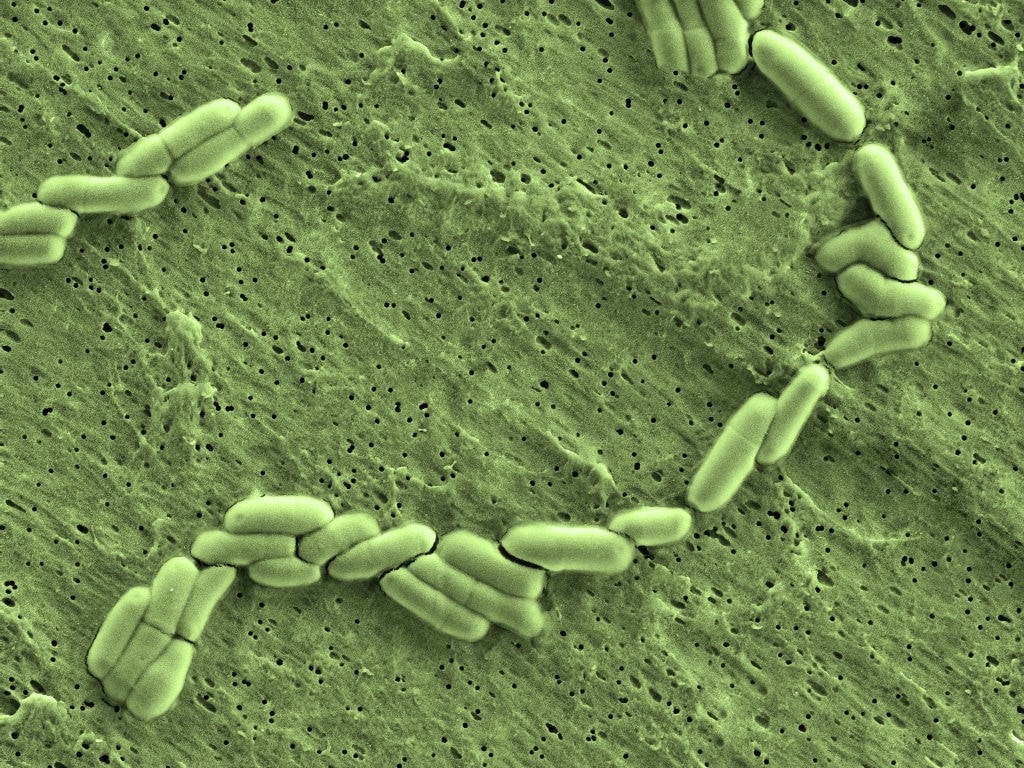Huge Study on B. lactis BB-12 for Regularity
It’s with great excitement that we can release some fabulous new evidence in support of the Bifidobacterium lactis BB-12® strain. The new study, one of the world’s largest clinical studies on probiotics to date, focuses on the already well-established gastrointestinal benefits of BB-12® and supports its position as the best documented strain of the entire Bifidobacteria family.

The research was conducted in response to disturbing statistics which suggest that up to 12% of the entire global population suffers from constipation, with around 23% of the world’s population suffering from a wider range of gastro-intestinal symptoms. When gastro-intestinal symptoms leave doctors baffled, as no measurable biomarkers exist and each patient’s presentation of symptoms may vary, the condition is often broadly termed as ‘Irritable Bowel Syndrome’ (IBS), and appears to be a growing problem. Researchers believe that less than optimal digestive function is in fact suffered by up to 50% of people across the globe. Results from the study were extremely encouraging, however - for those with slow stool transit time or fewer than normal bowel movements - and suggest that a single strain of bacteria could well come to the rescue for millions of people.
"What is truly unique about this study is its size, of more than 1200 subjects varying in age from 18 to 70, which has resulted in the largest dataset available on the effect of probiotics on bowel function,” Mikkel Jungersen, Scientific Advisor, HHN, Chr. Hansen.
This amazing strain of Bifidobacteria (full name Bifidobacterium animalis subsp. lactis BB-12®), was put to the test in a research project that used over 1,200 subjects in France, UK and Germany, who were selected from a volunteer database. The volunteers were all healthy and had never previously been diagnosed with acute digestive dysfunction, but had reported symptoms of low defecation frequency and abdominal discomfort.
The volunteers were split into three groups, those given 1 billion doses of BB-12® colony-forming units once daily, those given doses of 10 billion colony-forming units once daily, and a placebo group who were given a matching placebo capsule once daily. The test period was for 4 weeks, and other factors that might have influenced results, such as diet and exercise, were also monitored and assessed in the test subjects.
Bifidobacterium lactis BB-12® - most researched for constipation
Results from the study show that the probiotic strain Bifidobacterium lactis BB-12® can be part of a solution to improve bowel regularity. According to the study, the odds for having more regular bowel movements were significantly higher when consuming the BB-12® probiotic strain for four weeks in either dose, compared to the placebo group. This verifies results from previous studies, and shows a clinically relevant effect of the probiotic strain on bowel regularity.
"Once again, it is confirmed that the BB-12® probiotic strain can bring significant gastrointestinal benefits to those who experience digestive issues". Mikkel Jungersen, Scientific Advisor, HHN, Chr. Hansen
You can find Bifidobacterium lactis BB-12® in Optibac Probiotics Bifido & Fibre.

What makes this study so interesting?
Aside from the impressive size of this study, there are other factors to note from the results. Nutritionist Miguel Rodrigues commented:
“It’s fantastic to see such positive results recorded using just 1 billion cultures, and from a single strain of bacteria. There's an overwhelming misconception in the industry that the higher the strength, the higher quality the probiotic - and similar myths exist regarding the number of strains in a product. This huge study supports our message that getting the right strain for the individual is the most important factor in selecting an effective probiotic.” Miguel Rodrigues BSc (Hons), Nutritionist at Optibac Probiotics.
In a marketplace where a ‘more billions is better’ viewpoint can often prevail, it certainly was interesting to note that it doesn’t always take a massive dose to be therapeutic, as in the study, a dose of 1 billion had the same effects as 10 billion. It’s through research like this that shows that companies can keep their costs down for customers by only including the amount of billions shown to be effective, not filling supplements with cultures in an attempt to out-strength other brands! (Incidentally you can read more probiotic myths in the Probiotics Learning Lab.)
“The results from the present large study suggest that a ceiling effect exists for defecation frequency and has been reached with the one billion dose of the probiotic strain BB-12” said the researchers.
The study was recently published in British Journal of Nutrition and initiated by Chr. Hansen in 2011. Bifidobacterium lactis BB-12® has been used as an ingredient in food and dietary supplements since 1985. Over the last 30 years, more than 170 clinical studies have shown that this probiotic strain has a positive effect on the immune and gastrointestinal system. Today, it is consumed by hundreds of millions of people all over the world every day, presumably by the 50% of the world’s population who now have normal bowel regularity! For further reading take a look at ‘Bifidobacterium lactis BB-12®’ on our Probiotics Database.
For more blog posts about this celebrity strain of Bifidobacteria, click on these links to our other related articles here:
'Meta-analysis of probiotics for constipation'
Or you might also be interested to read our FAQ in the Probiotics Learning Lab, 'Which probiotics for IBS?'
References
- A multinational survey of prevalence and patterns of laxative use among adults with self-defined constipation. Alimentary Pharmacology & Therapeutics; 2008.
- International Foundations for Functional Gastrointestinal Disorders (IFFGD), April 2014
- Hughes et al.: Defecation frequency and timing, and stool form in the general population: a prospective study. Gut 1992: 33, pp. 818-824
- Dorte Eskesen et al, (2015), Effect of the probiotic strain Bifidobacterium animalis subsp. lactis, BB-12®, on defecation frequency in healthy subjects with low defecation frequency and abdominal discomfort: a randomised, double-blind, placebo-controlled, parallel-group trial , British Journal of Nutrition (Human and Clinical Nutrition), http://dx.doi.org/10.1017/S0007114515003347
Popular Articles
View all Digestive Health articles-
Digestive Health12 Jul 2023


